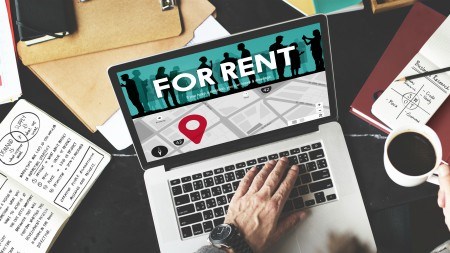If you are a first-time renter, one of the biggest questions to start off answering is whether you’re prepared to rent directly from the landlord or if you’d prefer to go through a professional letting agency. We discuss the pros and cons of each below to help with making the best choice for yourself.
RENTING FROM A LETTING AGENCY: PROS
Wide database of properties – rental agencies are far more knowledgeable and have a greater degree of access to all current properties on the market. It is therefore much easier and quicker to find something that suits your lifestyle and pocket with the help of a letting agent.
Knowledge of the law – it’s the job of the letting agent to know the ins and outs of all property laws, which is an incredibly helpful resource to have when dealing with legal documents and compliance requirements. There is therefore a huge degree of safety, assurance and peace of mind that comes with dealing with a letting agent.
Assistance down the line – it’s helpful to know you’ll have the back-up and support of your letting agent if something were to go wrong during your lease. They could also prove to be a good resource should you wish to move on and pursue a different property option as they would be akin to your property preferences and requirements by then.
RENTING FROM A LETTING AGENCY: CONS
Bottle-neck in communication – as with most things, relaying communication through a third-party can be time-consuming and onerous if not managed properly. What this could mean is delays in getting things sorted out with regards to your property as you are reliant on the letting agent to convey any messages or requests to your landlord and then to relaying any consequent feedback to you.
The expense – letting agents cost money, and if you are working on a tight budget, could be a luxury you cannot afford. There are numerous fees that a letting agent could charge you for, such as admin fees, a finder’s fee or commission etc, so be sure to enquire as to what costs are involved before committing yourself to an agent. Also, be sure to factor these costs into your monthly budget when considering what properties you can or can’t afford to look at.
RENTING FROM A LANDLORD: PROS
Investment in the property – because the landlord owns the property you are renting, they are more likely to look after it and keep it in good condition while you are staying there. This means that access to ongoing maintenance and a fast response to any issues could be expected which is a definite benefit to any tenant.
Direct communication – unlike renting from a letting agent, you have direct access and communication with the landlord when it comes to any property issues or requests. This could mean a speedier response as you won’t be reliant on the agent to relay any messages to or from the landlord on your behalf. It also means that you have one consistent point of contact when it comes to your property, as your letting agent may leave mid-way through your lease leaving you with someone new to deal with.
The expense – it is often much cheaper to rent directly from the landlord as you normally aren’t required to pay any additional fees to them on top of your rent. This could mean being able to stretch your budget that bit further and renting a place that really ticks all of your boxes.
Willingness to negotiate – landlords are often way more open and willing to negotiating as opposed to a letting agent. Landlords aren’t as bound or restricted as letting agents are in terms of negotiating because they are the ones directly responsible for making a call. They are therefore able to remain more open-minded should they choose to be.
RENTING FROM A LANDLORD: CONS
Limited knowledge of the law – landlords are often unaware of all the laws and regulations that govern a lease agreement. This could mean that they fail to perform or comply with all of the obligatory regulations and checks which could endanger you both physically - should they fail to perform a required safety check for example - as well as legally i.e. if they structure the lease incorrectly and you sign on for something that isn’t technically legal.
Lack of regulation – perhaps the greatest risk of renting directly from the landlord is that the terms of your lease agreement remain relatively unregulated or policed. This could mean that you find yourself in a difficult position with a landlord that doesn’t have your best interests at heart, with little or limited recourse and knowledge when it comes to your rights.
There are many factors that can determine which course of action you chose to take when it comes to who you choose to rent from. These factors include your budget, property requirements as well as your familiarity with rental laws and tenant rights. You might also prefer to “take the bull by the horns” and deal directly with your landlord. That said, you might be someone who enjoys the benefit of having someone alongside them should any issues arise. Whatever your stance is, be sure to work through and consider all the pros and cons of each in order to ensure a pleasant and mostly hassle-free tenancy.





